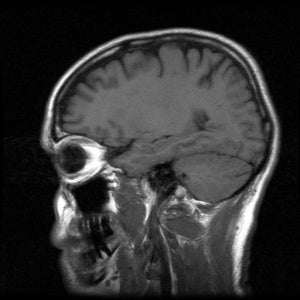
US based Impel NeuroPharma announced today that it has completed its human proof of concept study with POD technology demonstrating nose-to-brain delivery, opening the door for central nervous system (CNS) drugs to be delivered directly to the human brain.
The study, which is a first for the pharmaceutical and biotechnology industries, could lead to potential treatments for complex neurological conditions that were previously blocked by the blood-brain barrier (BBB).

Discover B2B Marketing That Performs
Combine business intelligence and editorial excellence to reach engaged professionals across 36 leading media platforms.
Images taken using SPECT imaging show that the POD device successfully deposited a therapeutic amount of radiolabeled tripeptide into the deep nasal cavity which then enabled rapid and significant delivery to the central nervous system, bypassing the BBB.
CEO Michael Hite described the completed study as both a milestone for the company and a groundbreaking moment for the industry.
"We conclusively demonstrated the POD technology can deliver clinically meaningful levels of biologic drug products to the central nervous system (CNS)," he said.
The company plans to discuss the results at BIO 2013 in Chicago next week.

US Tariffs are shifting - will you react or anticipate?
Don’t let policy changes catch you off guard. Stay proactive with real-time data and expert analysis.
By GlobalDataNeurological conditions result from damage to the brain, spinal column or nerves, caused by illness or injury. Neurological conditions can be life threatening and severely affect quality of life.
According to Hite, advances in CNS therapeutics are currently being hindered by the fact that molecules can’t be directly delivered to the CNS because of the blood-brain barrier. Nose to brain delivery is an opportunity to bypass the BBB, providing hope for CNS conditions that currently lack a good treatment option, he added.
In 1989 it was discovered that intranasal delivery could be used to bypass the blood-brain barrier but there has since been a need for a safe, reliable and effective device to target the upper third nasal cavity.
Director of the Alzheimer’s Research Center and Professor of Pharmaceutics Neurology and Neuroscience at the University of Minnesota, Dr. William Frey II, said: "The Impel study is exciting because it confirms that the pathway is conserved across animal species and can be utilised clinically to facilitate delivery of drugs."
"The study demonstrated that the Impel POD nasal device successfully targets the upper posterior portion of the human nasal cavity resulting in rapid therapeutic delivery to multiple brain regions including those involved in Alzheimer’s Parkinson’s and stroke," he added.
Impel will continue its clinical experience with two IND-approved human studies later this year, including one at the University of Washington.
The company was recently awarded a $650,000 Small Business Investigational Research grant from the National Institutes of Health (NIH) to develop a cost-effective version of the POD device for use in research labs.
Image: Neurological conditions result from damage to the brain, spinal column or nerves, caused by illness or injury. Photo courtesy of Max Brown.




